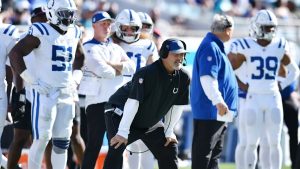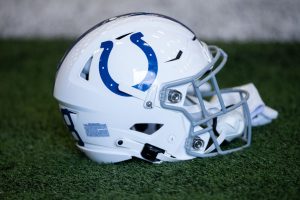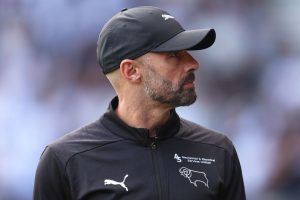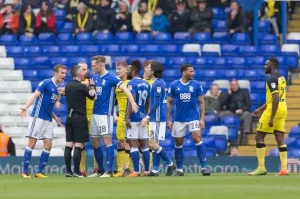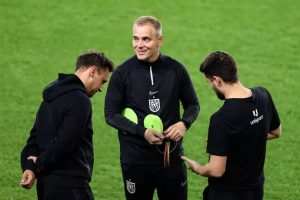
Gary Cooper, who previously played for the Atlanta Braves, is in desperate need of the cash that the players’ pension may provide.
So, what is the problem? Cooper was only with the Braves for 42 days in 1980. To be eligible for the Major League Baseball Players Benefit Plan, you must be in uniform for 43 days as a player, coach, or manager.

Cooper participated in 21 games during his 42-day stint as a pinch runner or defensive replacement in the outfield. He went 0 for 2 in the major leagues. In seven minor league seasons across three levels, he hit.234/.332/.311, with 25 home runs and 240 RBI. He also stole 211 bases on 271 attempts. Cooper was born at the wrong year. His batting averages were ordinary in an era when batting stats were overvalued. He did, however, draw 388 walks over the course of seven seasons. In 1976 and 1977, his OBP was.356 and.363, respectively. Cooper would have been a sought-after player in today’s age of analytics and Moneyball.
Cooper Gets the Call
The Braves called up Cooper on August 25, 1980. They were scheduled to play the defending world champion Pittsburgh Pirates at Three Rivers Stadium.
Cooper was brought in to play left field in the eighth inning, with the Braves leading 8-4. In the bottom of the ninth, the Pirates began to rally against Preston Hanna. Mike Easler’s two-out RBI double knocked Hanna out of the game. With Larry Bradford on the mound, Omar Moreno singled to left field, driving in Easler. Cooper, who may have been unfamiliar with the artificial turf, came in too quickly, only to see the ball bounce high above him. Cooper turned, caught the ball over his shoulder with his bare hand, wheeled, threw, and nailed Moreno at second base, attempting to stretch the single into a double. That ended the game and preserved an 8-6 Braves victory. It was Cooper’s finest moment in the majors.
Rained Out of a Pension
Cooper is at the opposite end of the baseball spectrum from Shohei Ohtani, who has the potential to sign a $700 million contract. Cooper, 67, is currently battling. He lives in Savannah with a relative and is just receiving Social Security benefits. He does not have a car, money, or pension. He has had part-time work as a landscaper, but work has generally been scarce. He filed an appeal with MLB and the MLB Players Association for pension benefits. Cooper maintained that if not for the rainout, he would have remained on the Braves’ roster for one more day, making him eligible for the pension.
Both bodies denied Cooper’s appeal. As it turned out, the rainout had no effect on the number of days of service. A game does not have to be played for a player to earn credit for the day. Cooper was already a day short. Furthermore, the committees refused to relax the 43-day rule for Cooper. That may appear harsh, but it is not so straightforward. By law, a pension plan must operate in accordance with its specific conditions. With one deviation, the IRS can invalidate the plan (or keep it alive in exchange for a high penalty). Unfortunately, this is true even when the deviation benefits a struggling former baseball player.
Braves Can Still Help Cooper Get His Pension
All is not lost, however. A major league team can sign Cooper to a one-day contract as a coach, and he becomes eligible for a pension. Although any team would do, the Braves are the logical choice. After all, Cooper played for them. Besides, the Braves once did the same for Satchel Paige back in 1968. The Negro League legend Paige, who played for three major league teams, needed 158 days of service to qualify for the pension. The Braves signed him as a pitcher/coach and kept him on the team for the entire season. There was risk involved in signing Paige as a pitcher, as nobody even knew his real age, including Paige himself. Paige claimed to have no birth certificate. At various times, he said the nurse died before she could fill it out. Or it was destroyed in a fire. Or it was eaten by a mule.
Then-Braves president William C. Bartholomay, who valued baseball history, didn’t mind either way. He said to The Washington Post, “We hope we can use him as a pitcher, but very frankly, we want to make him eligible for a place in baseball’s pension.” Paige did not pitch for the Braves but was in uniform as a coach for the season. He would also work as an assistant trainer. His attendance was not a joke nor a marketing stunt.
Similarly, Cooper is requesting assistance from the Braves in obtaining his pension, but he is not seeking a handout. He mentions that the Braves do not have a baserunning coach. He is willing and capable of filling that vacuum.
The Last Word
On March 10, Cooper’s friend Robert Jonas created a petition on change.org requesting that the Braves appoint Cooper on their coaching staff for one game in 2024. As of this writing, there are 17,018 signatures, but no response from the Braves. With a payroll estimated at $230 million and playing in the seventh-largest television market in the United States, one would expect the Braves could take on Cooper for the day. That pass to catch Moreno in 1980 must be worth something, right?
